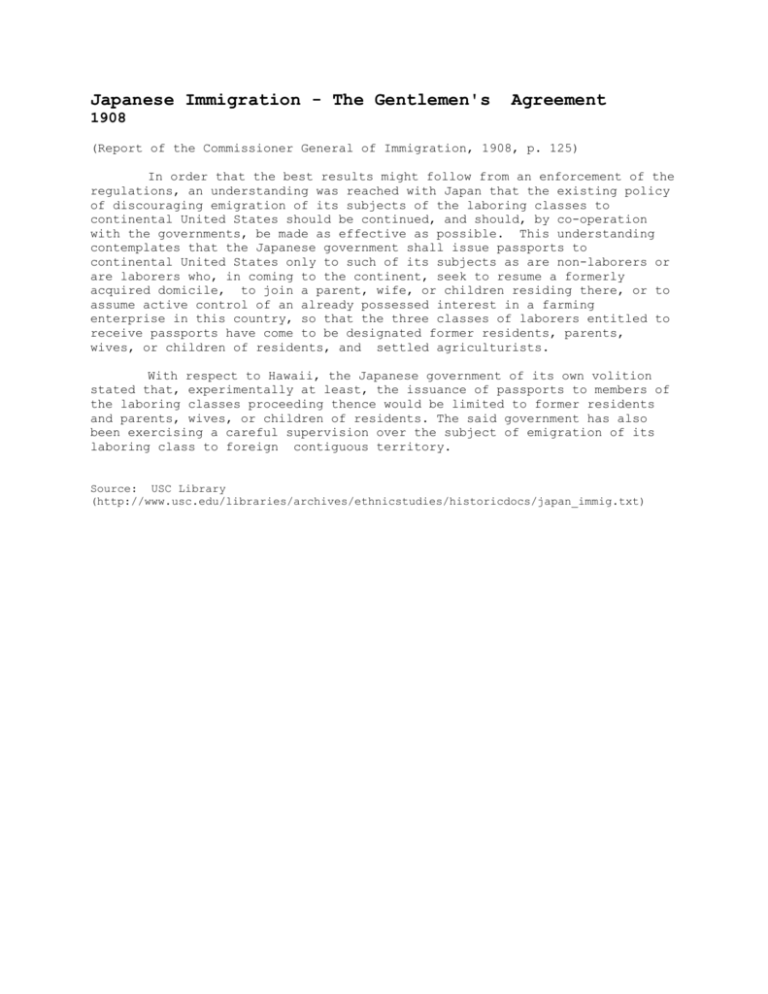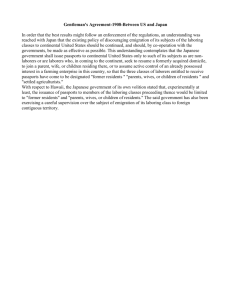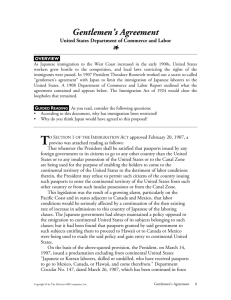Japanese Immigration - The Gentlemen's Agreement
advertisement

Japanese Immigration - The Gentlemen's Agreement 1908 (Report of the Commissioner General of Immigration, 1908, p. 125) In order that the best results might follow from an enforcement of the regulations, an understanding was reached with Japan that the existing policy of discouraging emigration of its subjects of the laboring classes to continental United States should be continued, and should, by co-operation with the governments, be made as effective as possible. This understanding contemplates that the Japanese government shall issue passports to continental United States only to such of its subjects as are non-laborers or are laborers who, in coming to the continent, seek to resume a formerly acquired domicile, to join a parent, wife, or children residing there, or to assume active control of an already possessed interest in a farming enterprise in this country, so that the three classes of laborers entitled to receive passports have come to be designated former residents, parents, wives, or children of residents, and settled agriculturists. With respect to Hawaii, the Japanese government of its own volition stated that, experimentally at least, the issuance of passports to members of the laboring classes proceeding thence would be limited to former residents and parents, wives, or children of residents. The said government has also been exercising a careful supervision over the subject of emigration of its laboring class to foreign contiguous territory. Source: USC Library (http://www.usc.edu/libraries/archives/ethnicstudies/historicdocs/japan_immig.txt)








